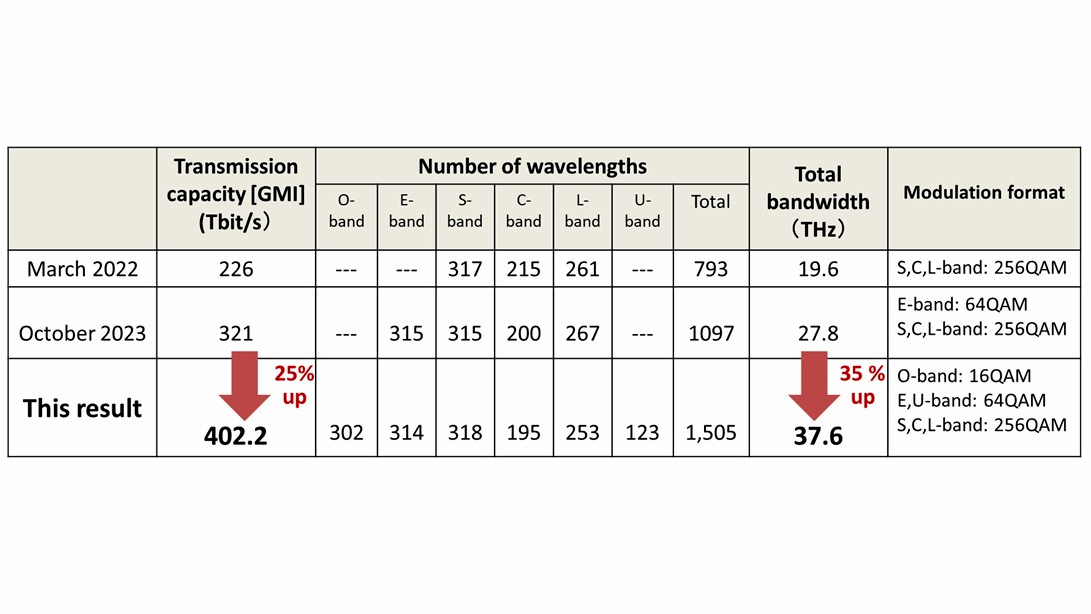
Internet speed freaks, this one's for you: Japanese researchers have officially set a new world record for download speeds by hitting 402 Tbps (Terabits per second), breaking the 321 Tbps record they set last year.
That's effectively 402,000,000 Mbps (Megabits per second), which makes the 950 Mbps I get at home from my own ISP (thanks Sonic) look like a rounding error. It's so fast that you could download all 18+ GB of Elden Ring—and heck, your entire Steam library to boot—in less time than it took to read this sentence.
This is a big deal because it affords us a glimpse of what kind of speeds are possible with our current technology, as the researchers used widely available fiber optic cables to achieve this new record.
They also developed new technologies to do it, including "the world's first O to U-band transmission system capable of DWDM transmission in a commercially available standard optical fiber achieved with custom designed amplifier technology," according to a press release
The work was conducted by an international team led by researchers from the Photonic Network Laboratory at the National Institute of Information and Communications Technology (NICT) in Tokyo, Japan.
Together they worked out how to better amplify data signals to take full advantage of the transmission capabilities of fiber optic cabling, including "combining 6 doped-fiber amplifier variants with lumped and distributed Raman-amplification to cover all of the low-loss transmission bands of silica fibers" to achieve a record-breaking 37.6 THz (Terahertz) of bandwidth across 50 km of fiber optic cabling.

I can't tell you what half of those words mean, but I can tell you that there's no way you're going to see anything close to these speeds at home in the near future. As wonderful as it would be to download big games like Baldur's Gate 3 or Call of Duty in under a second, PCGamer points out that even the best gaming PCs simply don't have the hardware to handle that much data that fast. Even if you could somehow cram all that data through your PC's Ethernet port, there's no drive on Earth that could write it that fast.
No, what matters here is that researchers have developed a new transmission system that can push data through fiber optic cables faster than ever before. While it's all experimental at this point, the findings from this research could play a key role in helping take Internet speeds to the next level.







